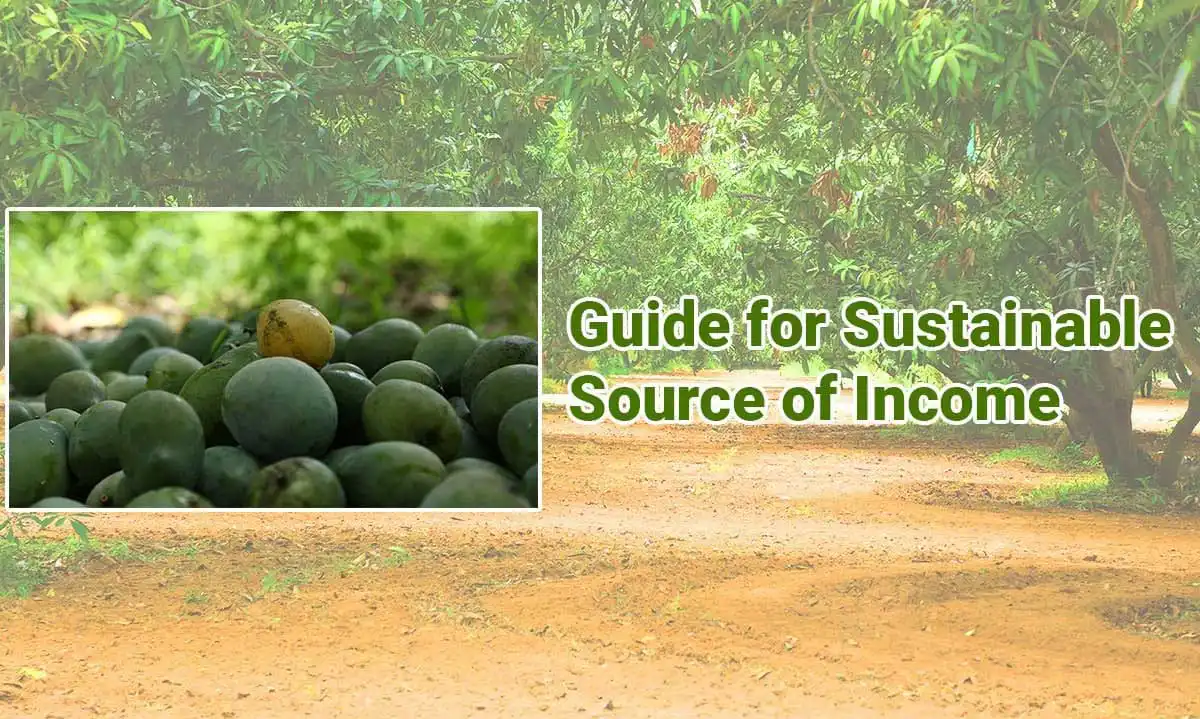Mango Tree Plantation: Guide for Sustainable Source of Income

Introduction to Mango Trees
Mangoes are not just a delight to our taste buds; they can also be a sustainable source of income through mango tree plantation. If you have a passion for farming and want to explore a profitable venture, establishing a mango farm could be the perfect choice. In this guide, we will delve into the world of mango farming and how it can provide a reliable and eco-friendly source of income.
Why Grow Mangos? Mango farming is a desirable alternative for people looking for a stable source of income due to its many benefits. Mango tree plantations can be profitable for the following main reasons:
High Demand: Mangoes are one of the most popular and commonly consumed fruits in the world, which guarantees a steady market and demand for this tropical fruit. Long Fruit Bearing Period: Once a mango tree reaches maturity, it can continue to produce fruit for decades, acting as a steady source of revenue. Profitability: Due to the consistent demand for and relatively high pricing of premium mangoes, mango farming can generate large returns with adequate management and care. Eco-friendly: Growing mangoes using organic techniques can advance sustainable agriculture and aid in environmental preservation. Adaptability: Mango trees are adaptable and can thrive in a variety of agro-climatic areas, making it possible to farm them around the world.Starting a Mango Tree Plantation: If you are prepared to start the process of establishing a mango farm the following are the necessary first steps:
Choosing the Right Variety: Consider the soil and climate of your area while choosing the best mango kinds. Alphonso, Kesar, Dasheri, and Langra are a few common types, each with distinctive flavor profiles and strong market demand. Site Selection: Mango trees need well-drained soil and prefer locations with plenty of sunlight, so site selection is important. To ensure the soil is enriched in organic matter and has the proper pH for optimum growth, test the soil. Land Preparation: Clear the land of any debris and weeds before starting. Include organic manure and create pits that are the right size to fit mango saplings. Planting the Saplings: Choose the right planting season and plant healthy mango saplings. During the first growing stage, give the plant enough water and attention. Management of Irrigation: Mango trees need regular watering, especially when they are blooming and developing fruit. Use effective irrigation methods to maximize growth while saving water. Nutrition and Fertilization: Use balanced fertilizers at the appropriate times to encourage fruit development and healthy growth. Long-term soil health may benefit from the use of organic fertilizers. Pest and Disease Control: Controlling pests and illnesses involves keeping a regular eye out for them in the orchard. Reduce the use of chemical pesticides by putting integrated pest management (IPM) strategies into practice. training and Pruning: Remove any dead or diseased branches from mango trees to preserve an open canopy. The trees can be shaped and their fruit yield can be increased with proper training. Harvesting and post-harvest management: To ensure the optimum flavor and quality, harvest the mangoes at the proper stage of ripeness. Fruit can have a longer shelf life if it is handled and stored properly after harvest.Cost and Profit Analysis: Before diving into mango farm, it is essential to conduct a thorough cost and profit analysis to understand the financial aspects of the project. Factors to consider include land and sapling costs, labor, irrigation expenses, fertilizers, pest control, and post-harvest handling.
Mango tree plantation can be a fulfilling and sustainable venture, offering a steady income stream while contributing to the well-being of the environment. By following best practices and staying updated with the latest advancements in mango farming, you can establish a thriving mango farm that brings both financial rewards and the satisfaction of nurturing nature's bounty. Remember to seek advice from experienced farmers and refer to reputable sources, such as Agrifarming.in's comprehensive guide on mango farming, including their valuable project report and cost-profit analysis, to make informed decisions and maximize your success in this lucrative agricultural endeavor.
Latest Blog
JOIN OUR COMMUNITY !
Stay connected with Getfarms! Follow us on social media for the latest updates, exclusive offers, and a glimpse into the world of farmhouse living. Join our community today














